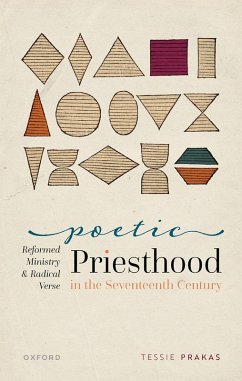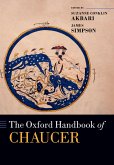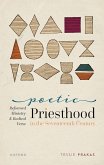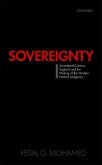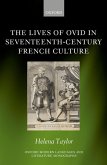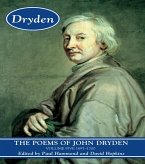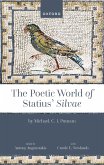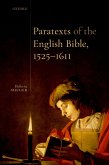Poetic Priesthood reads seventeenth-century devotional verse as staging a surprising competition between poetry and the established church. The work of John Donne, George Herbert, Richard Crashaw, John Milton, and Thomas Traherne suggests that the demands of faith are better understood by poets than by priests-even while four of these authors were also ordained. While recent scholarship has tended to emphasize the shaping influence of the liturgy on the poetry of this period, this book argues that verse instead presents readers with a mode of articulating piety that relies on formal experimentation, and that varies from the forms of the church rather than straightforwardly reproducing them. In crafting this poetic aid to devotion, these authors practiced an alternative and even more ample form of ministry than in their ecclesiastical activities. In the wake of the Reformation, the liturgy of the English church centered on rituals of communal prayer and praise, but the poetry considered in this study suggests that such rituals in fact risk distracting worshippers from the pleasures and challenges of navigating an individual relationship with God. Yet these poets do not make this suggestion by rejecting communal rituals outright. Their verse invokes ecclesiastical practice as a basis for formal innovation that suggests how intimacy with the divine might look, feel, and sound, connecting humans with their God more precisely and more individually than the liturgy can. As they shift between explicit comment on the liturgy and more subtle departures from it in the interplay of verse form and denotation, these authors claim the work of priesthood for poetry.
Dieser Download kann aus rechtlichen Gründen nur mit Rechnungsadresse in A, B, BG, CY, CZ, D, DK, EW, E, FIN, F, GR, HR, H, IRL, I, LT, L, LR, M, NL, PL, P, R, S, SLO, SK ausgeliefert werden.

